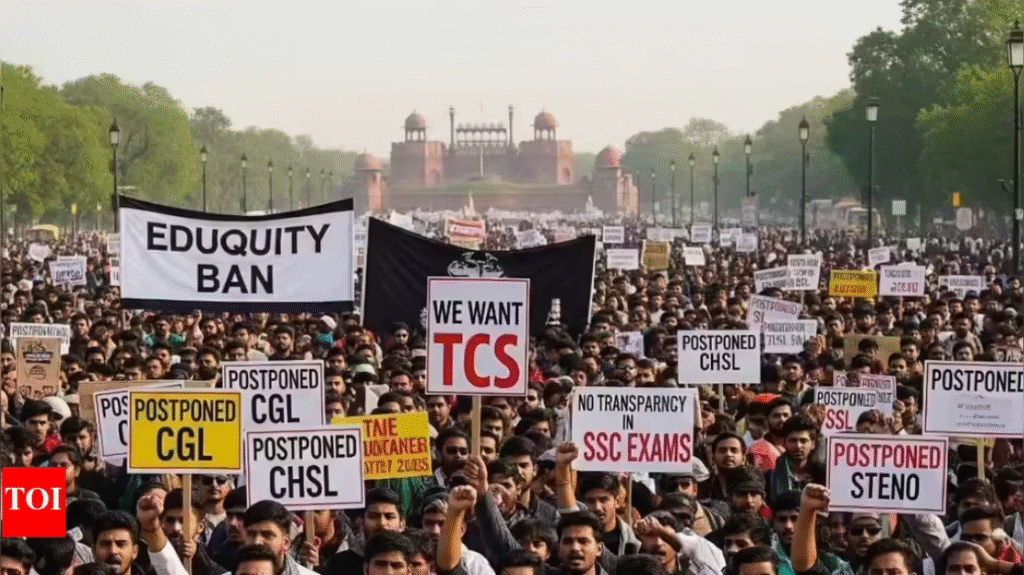Former Governor of Jammu & Kashmir and veteran political figure Satyapal Malik passed away on August 5 at the age of 79 in Delhi’s Ram Manohar Lohia Hospital after battling prolonged illness related to kidney and urinary complications. His political journey spanned over five decades, marked by bold opinions, shifting party affiliations, and high-stakes governance.
👤 Early Political Groundwork & Socialist Origins
Born on 24 July 1946 in Baghpat, Uttar Pradesh, Malik’s entry into public life began as a student leader—serving as President of his college and university unions in Meerut in the late 1960s. He was elected MLA in 1974 on a Charan Singh-led Bharatiya Kranti Dal ticket, later becoming All-India General Secretary of the Lok Dal in 1975.
In 1980 and 1986, Satyapal Malik served in the Rajya Sabha, representing Uttar Pradesh, before becoming a Lok Sabha MP from Aligarh in 1989 under Janata Dal. He briefly held Union Minister of State portfolios for Parliamentary Affairs and Tourism in 1990.
🏛️ Governors in Multiple States: A Critical Role
Satyapal Malik joined BJP in 2004 and later served as National Vice-President from 2012 onwards. Under Narendra Modi’s administration, he was appointed Governor of Bihar in September 2017, followed by Jammu & Kashmir in August 2018, becoming its last governor before Article 370 was abrogated on 5 August 2019.
His tenure included the politically charged withdrawal of J&K’s special status and its bifurcation—historic moves carried out under his office. He later served as Governor of Goa (Nov 2019–Aug 2020) and Meghalaya until October 2022.
🔥 Candid Views, Controversies & CBI Charges
Known for his outspoken temperament, Satyapal Malik courted controversy—calling office holders lazy and critical of Modi’s policies. Following his gubernatorial term, he made headlines for curious claims about Pulwama attack failures and internal security lapses.
In May 2025, the CBI filed a chargesheet against him and associates over alleged corruption related to the ₹2,200 crore Kiru hydropower project contract, although the investigation remains ongoing. In public, Satyapal Malik freely admitted his modest salary of ₹3.5 lakh per month and contrasted it with his son’s success as a designer earning ₹60 lakh per project—revealing the family’s broader net worth estimated at ₹40–50 crore.
🏛️ Political Legacy & Public Reactions
Satyapal Malik’s passing drew tributes from across the political spectrum. Uttar Pradesh CM Yogi Adityanath, BSP leader Mayawati, and Akhilesh Yadav lauded his life of principle and service, while expressing sorrow at losing a fearless voice in politics. His official death announcement came via his X (formerly Twitter) handle, marking the end of a storied career.
⚖️ Legal and Political Lessons
⚖️ Constitutional Authority vs Personal Views
Malik’s tenure showcased the structural powers of a state governor—especially during crises like the Article 370 abrogation and the Pulwama tragedy—where his public statements challenged official narratives and signaled friction within institutional bounds.
🔍 Corruption Allegations & Accountability
The Kiru project CBI probe underscores the legal scrutiny that can follow even high constitutional office bearers, affirming that public trust demands transparency irrespective of stature.
🔄 Partisan Shifts & Farmer Representation
A veteran of multiple parties—from socialist movements to BJP—Satyapal Malik symbolized the political fluidity of regional leadership, particularly his resonance with Jat farming communities in Western UP.
📌 At-a-Glance Summary
| Key Theme | Detail |
|---|---|
| Political Foundation | Student leader → MLA (1974) → Rajya Sabha & Lok Sabha MP |
| Governorship Roles | Bihar → Jammu & Kashmir → Goa → Meghalaya (2017–2022) |
| Historic Milestone | Oversaw Article 370 abrogation in J&K (2019) |
| Controversial Voice | Direct remarks on Pulwama, governors’ role, farmer issues, BJP policies |
| Legal Cloud | CBI chargesheet over alleged bribe in Kiru hydropower contract |
| Final Years | Hospitalised since May; died August 5, 2025 in Delhi |
✅ Final Thoughts
Satyapal Malik’s journey—from fervent socialist to constitutional head during J&K’s most transformative years—is one marked by unwavering public expression, political recalibration, and legal challenges. His death not only marks the end of an era in Indian gubernatorial history but also prompts reflection on governance, accountability, and evolving protections for dissenting voices in political office.
To read more Indian Laws and news, visit Legal Guide India



